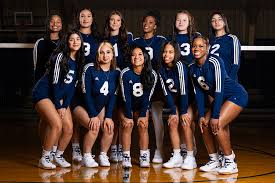The debate surrounding whether college athletes should be paid has gained significant traction in recent years. With the NCAA generating billions in revenue from sports, particularly football and basketball, many argue that the athletes, who are the foundation of this income, deserve compensation for their contributions. Here, we explore both sides of this contentious issue.
The Case for Paying College Athletes
- Revenue Generation: College sports, especially at major universities, rake in substantial profits. According to the NCAA, March Madness alone generates over $1 billion annually. While coaches and administrators reap the rewards, the athletes remain unpaid, despite being the primary draw for fans and sponsors.
- Time Commitment: The time demands placed on college athletes are immense. They often balance rigorous training schedules, games, and academic responsibilities, equating to a full-time job. Paying athletes could provide them with financial support to manage their busy lives and focus on their education.
- Fairness and Equity: Many argue that it is simply fair for college athletes to receive compensation, especially when considering that students in other university programs, such as music or theater, can earn scholarships and stipends for their talents and performances. Athletes should have the same opportunities.
- Injury Risks: Athletes face the risk of injury, which can derail their careers both on and off the field. Paying them could serve as a safety net, allowing them to pursue education or training should their athletic careers come to an unexpected halt.
The Case Against Paying College Athletes
- Amateurism: The NCAA has long held that college sports are meant to maintain the spirit of amateurism. Paying athletes could undermine this principle, potentially turning college sports into a professional league, which could detract from the educational experience.
- Title IX Compliance: Implementing a pay structure could complicate compliance with Title IX, which mandates gender equality in college athletics. Ensuring equitable pay across all sports could be challenging and may lead to cuts in non-revenue sports.
- Financial Implications for Schools: Not all colleges have the budget to pay athletes. For smaller schools, the financial burden could lead to increased tuition or cuts to programs that benefit the wider student body. Critics argue that the focus should be on providing scholarships and educational opportunities rather than direct payment.
- Market Dynamics: Some believe that allowing athletes to be paid would create an unfair advantage for larger schools with bigger budgets. This could exacerbate the competitive imbalance in college sports, further diminishing the parity that many fans value.


